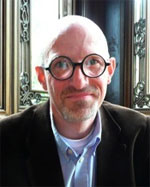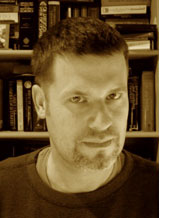
For intellectual discussion only
Original article was taken from
http://www.ignatiusinsight.com/features2005/clarkolson_cathbuddh_feb05.asp
Near the end of his life the Trappist monk and author Thomas Merton said that he wanted "to become as good a Buddhist as I can." A contemporary priest, Robert E. Kennedy, S.J., Roshi (Zen master), holds Zen retreats at Morning Star Zendo in Jersey City. He states on his web site: "I ask students to trust themselves and to develop their own self-reliance through the practice of Zen." Meanwhile, the St. Francis Chapel at Santa Clara University hosts the weekly practice of "Mindfulness and Zen Meditation." Similarly, there are a growing number of Buddhist retreats and workshops being held in Catholic monasteries and parishes.
Today there is a proliferation of resources and retreats dedicated to combining Zen Buddhism and Catholicism, suggesting that the Catholic Church has finally "awakened" from its "outdated" and "exclusivist" ecclesiology. While Buddhism has not been in the news recently as much as Islam, its influence and attraction has steadily increased in the West. Is Catholicism really "parallel" to Buddhism? Can Catholic doctrine be reconciled with Buddhist beliefs and practices?
The Coming of Buddhism
Buddhism is the fourth largest religion in the world, with about 370 million adherents, or about 6% of the world's population. Although less than 1% of Americans identify themselves as Buddhist, interest in this ancient belief system is growing. Sections on Buddhism in major bookstores usually dwarf those dedicated to Islam or Hinduism and there has been a steady stream of articles and books about (and by) the Dalai Lama in recent years. Some stores even display the Dalai Lama’s works beside those of Pope John Paul II, hinting at the "similarities" of the Buddhist and Catholic faiths.
The influence of Buddhist thought in some Catholic circles has been evident since the 1960s. In the wake of the Second Vatican Council's call for respectful dialogue with other religions, many Catholics, including many priests and religious, dove headlong into studying Buddhism. Much was made (and still is) of the many "common characteristics" of Catholicism and Buddhism, especially in the realm of ethics. External similarities, including monks, meditation, and prayer beads, seemed to indicate a newly discovered closeness between the followers of Christ and Buddha. While some helpful interreligious dialogue and study was accomplished, some Catholics mistakenly concluded that Buddhism was just as "true" as Christianity, and that any criticism of Buddhism was "arrogant" and "triumphalistic."
This attitude still exists, of course, as do attempts to combine the two faiths. It's not uncommon for Catholic retreat centers to offer a steady diet of classes and lectures about Zen Buddhism, Christ and Buddha, and even "Zen Catholicism." Their bookstores feature titles such as Zen Spirit, Christian Spirit, Jesus and Buddha: The Parallel Sayings, and Going Home: Jesus and Buddha As Brothers. Comparisons are often made between Christian mysticism and Buddhist mysticism, at times suggesting that the two are essentially identical in character and intent.
The Attraction of Buddhism
In Crossing the Threshold of Hope, the Holy Father notes that the Dalai Lama has worked to bring "Buddhism to people of the Christian West, stirring up interest both in Buddhist spirituality and in its methods of praying." He points out that, "Today we are seeing a certain diffusion of Buddhism in the West." So what makes this diffusion possible and so influential?
Buddhism is attractive for numerous reasons. Among them is the desire for spiritual vitality in the midst of the emptiness of secular life, the promise of inner peace, and the need for an explicit moral code. In his classic study, Buddhism: Its Essence and Development, Edward Conze writes, "To a person who is thoroughly disillusioned with the contemporary world, and with himself, Buddhism may offer many points of attraction, in the transcending sublimity of the fairy land of its subtle thoughts, in the splendor of its works of art, in the magnificence of its hold over vast populations, and in the determined heroism and quiet refinement of those who are steeped into it."
Another key appeal of Buddhism is its non-dogmatic and seemingly open-minded character. For those who reject the dogmatic and objective claims of Christianity, or who believe that Christianity should avoid an "exclusive" or absolute approach to truth, Buddhism offers an easier alternative. In addition, some Christians find solace in believing that their faith in Christ and Buddhism are compatible.
As the Dalai Lama stated in a Beliefnet.com interview, "According to different religious traditions, there are different methods. For example, a Christian practitioner may meditate on God's grace, God's infinite love. This is a very powerful concept in order to achieve peace of mind. A Buddhist practitioner may be thinking about relative nature and also Buddha-nature. This is also very useful." In other words, Christianity and Buddhism are two ways to the same end; Jesus and Buddha are two enlightened teachers who help man to that end. Or, as one reader on a Christian discussion forum states, "Buddha was just a philosopher who urged men to be selfless. Jesus was just a philosopher who urged men to be selfless. Love is just another word for selfless." Such easy parallels between Christ and Buddha are, in the end, are misleading and distort the teachings of the Church.
The Basics of Buddhism
Since Buddhism appears less concerned with dogma or doctrine than right living, is it compatible with Catholic doctrine? A glance at Buddhist basics will help answer this question.
Buddha (c. 563-c. 483 B.C), born Siddhartha Gautama, was the son of a king in India. Around the age of thirty he left his privileged life in court to became an ascetic, and spent several years traveling and meditating on the human condition, considering especially the reality of suffering. One day, meditating beneath a bodhi tree, he became enlightened (Buddha = "enlightened one"), and afterward began to each his dharma, or doctrine, of the Four Noble Truths.
The Four Noble Truths are that (1) life is suffering, (2) the cause of suffering is desire, (3) to be free from suffering we must detach from desire, and (4) the "eight-fold path" is the way to alleviate desire. The eight-fold path includes having right views, intentions, speech, actions, livelihood, effort, mindfulness, and concentration. The final goal of Buddhism is not merely to eradicate desire, but to be free of suffering.
Buddha also taught the "three characteristics of being": that all things are transitory, there is no "self" or personality, and this world brings only pain and suffering. To accept the existence of anything involves giving birth to its opposite (i.e., love and hate, joy and fear, etc.), which results in a duality of "good" and "bad." Nirvana, literally, "putting out a fire," is the extinction of self and the escape from the cycle of reincarnation. A Buddhist might allow one to believe in an afterlife, but such an allowance is called upaya, an expedient means to a real end. That is, upaya allows belief to exist as a means to an end; all religious belief, including Buddhism itself, is merely a construction. According to Buddhist upaya, Christianity is allowable as long as it is viewed as a stage of spiritual progression, leading eventually to the extinction of self — nirvana. In the two major forms of Buddhism, Hinayana and Mahayana, the latter teaches that man is already "extinguished," he just needs to realize it.
It is sometimes said that Buddhism is atheistic. Yet Buddhism is not interested in the question of God, so it is more accurate to describe it as agnostic. Buddhism "works" whether or not there is a God. A Buddhist allows others to believe in a God or gods, but such beliefs are merely convenient means to the final end, which has nothing to do with a God or gods. "God is neither affirmed nor denied by Buddhism," wrote Merton in Mystics and Zen Masters, "insofar as Buddhists consider such affirmations and denials to be dualistic, therefore irrelevant to the main purpose of Buddhism, which is emancipation from all forms of dualistic thought."
Important Distinctions and Deep Divides
Despite many external similarities, Buddhist meditation and contemplation is quite different from orthodox Christianity. Buddhist meditation strives to "wake" one from his existential delusions. "Therefore, despite similar aspects, there is a fundamental difference" between Christian and Buddhist mysticism, wrote John Paul II. The Holy Father continued: "Christian mysticism . . . is not born of a purely negative 'enlightenment.' It is not born of an awareness of the evil which exists in man's attachment to the world through the senses, the intellect, and the spirit. Instead, Christian mysticism is born of the Revelation of the living God."
 Anthony E. Clark, Ph.D. is is an Assistant Professor of East Asian history at Whitworth University, and his research centers on the history of Western missionaries in China, especially during the late nineteenth and early twentieth centuries. He did his doctoral studies at the University of Oregon, where he studied Chinese history, philosophy, and religion. Anthony E. Clark, Ph.D. is is an Assistant Professor of East Asian history at Whitworth University, and his research centers on the history of Western missionaries in China, especially during the late nineteenth and early twentieth centuries. He did his doctoral studies at the University of Oregon, where he studied Chinese history, philosophy, and religion.
He is an author of several academic and popular works, including books and articles on Chinese historiography, cultural interaction between China and the West, and his primary interest, which is the history of Sino-Western religious and cultural re-presentation during China's late imperial to early modern era. He has also been researching the history of Catholic martyrs in China and has recently finished writing a book on that subject. Dr. Clark has presented papers at numerous academic conferences and has also been a guest on "EWTN Live." and "Catholic Answers Live" to talk about Catholicism in China. He is also a contributing editor for This Rock magazine.
 Carl E. Olson is the editor of IgnatiusInsight.com. He is the co-author of The Da Vinci Hoax: Exposing the Errors in The Da Vinci Code and author of Will Catholics Be "Left Behind"? He resides in a top secret location in the Northwest somewhere between Portland, Oregon and Sacramento, California. Visit his personal web site at www.carl-olson.com . Carl E. Olson is the editor of IgnatiusInsight.com. He is the co-author of The Da Vinci Hoax: Exposing the Errors in The Da Vinci Code and author of Will Catholics Be "Left Behind"? He resides in a top secret location in the Northwest somewhere between Portland, Oregon and Sacramento, California. Visit his personal web site at www.carl-olson.com .
|



Anthony E. Clark, Ph.D. is is an Assistant Professor of East Asian history at Whitworth University, and his research centers on the history of Western missionaries in China, especially during the late nineteenth and early twentieth centuries. He did his doctoral studies at the University of Oregon, where he studied Chinese history, philosophy, and religion.
Carl E. Olson is the editor of IgnatiusInsight.com. He is the co-author of The Da Vinci Hoax: Exposing the Errors in The Da Vinci Code and author of Will Catholics Be "Left Behind"? He resides in a top secret location in the Northwest somewhere between Portland, Oregon and Sacramento, California. Visit his personal web site at www.carl-olson.com .
Return to Singapore DharmaNet